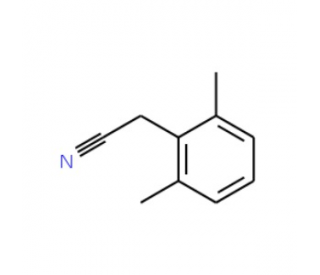详细说明
Purity
>90%, by SDS-PAGE under reducing conditions and visualized by silver stain
Endotoxin Level
<1.0 EU per 1 μg of the protein by the LAL method.
Activity
Measured by its ability to cleave beta -casein. Recombinant E. coli HTRA/Protease Do will cleave >95% cleavage of beta -casein, as measured under the described conditions. See Activity Assay Protocol on www.RnDSystems.com
Source
E. coli-derived Ala27-Gln474, with a C-terminal 10 His tag and ERSIGS sequence
Accession #
N-terminal Sequence
AnalysisAla27
Predicted Molecular Mass
49 kDa
SDS-PAGE
50 kDa, 41 kDa and 27 kDa, reducing conditions
1670-SE |
| |
Formulation Supplied as a 0.2 μm filtered solution in HEPES and NaCl. | ||
Shipping The product is shipped with dry ice or equivalent. Upon receipt, store it immediately at the temperature recommended below. | ||
Stability & Storage: Use a manual defrost freezer and avoid repeated freeze-thaw cycles.
|
Assay Procedure
Materials
Assay Buffer: 50 mM Tris, pH 8.0
Recombinant E.coli HTRA/Protease Do (reHTRA) (Catalog # 1670-SE)
beta -Casein (Sigma, Catalog # C-6905), 1.0 mg/mL stock in 25 mM Tris, 0.15 M NaCl, pH 7.5
SDS-PAGE with silver staining
Dilute beta -Casein to 0.4 mg/mL in Assay Buffer.
Dilute reHTRA to 0.04 mg/mL in Assay Buffer.
Combine 25 μL of beta -Casein and 25 μL of reHTRA in a tube. Prepare a control containing 25 μL of beta -Casein and 25 μL of Assay Buffer.
Incubate the mixture for 1 hour at 45 °C.
Stop the reaction by adding SDS-PAGE sample buffer.
Analyze the cleavage by SDS-PAGE using silver staining to detect protein.
Per Reaction:
reHTRA: 0.02 mg/mL
beta -Casein: 0.2 mg/mL
Background: HTRA/Protease Do
As a heat shock protein and a serine protease, HTRA (Protease Do or the DegP protease) is indispensable for bacterial survival at temperatures above 42 °C (1). It is a periplasmic protein with a signal peptide of 26 amino acid residues. The mature protein contains two 90 amino acid PDZ domains, which start at residue 280. The serine protease activity is inhibited by diisopropyl fluorophosphate or dichloroisocoumarin. Four human proteins have been identified that are homologous to E. coli HTRA and believed to play a role in arthritis, cell growth, unfolded stress response, apoptosis, aging, and tumor progression (2).
References:
Skorko-Glonek, J. et al. (1995) J. Biol. Chem. 270:11140.
Clausen, T. et al. (2002) Mol. Cell 10:443.
Long Name:
High Temperature Requirement
Entrez Gene IDs:
962111 (E. coli)
Alternate Names:
DegP; HTRA; Protease Do











 粤公网安备44196802000105号
粤公网安备44196802000105号